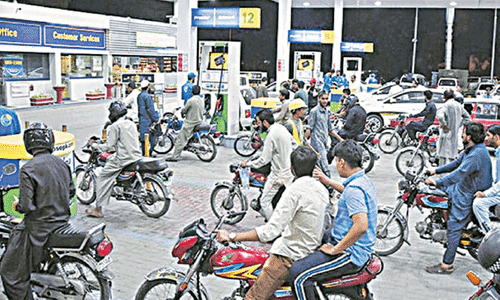BEIJING: China’s economy grew 6.7 per cent last year, its slowest since 1990, and is expected to slide further this year but at a stable clip to 6.5pc.
Its performance last year, helped along by larger government spending and a buoyant property market, came with costs as debt went up and the risk of asset bubbles heightened.
The economy grew 6.8pc in the last quarter of 2016, the first quarterly pickup since 2004, showing that the growth momentum is “quite solid”, said Mr Ding Shuang, head of Greater China Economic Research at Standard Chartered Bank.
China’s stock markets yesterday rose in reaction to the news, with the benchmark Shanghai Composite Index going up 0.7pc to close at 3,123.14 points.
The National Bureau of Statistics director, Mr Ning Jizhe, who announced the data at a press conference yesterday, said the last quarter’s growth figure was a “good start” to the goal of achieving an annual growth rate of 6.5pc up till 2020.
“China’s (growth) was within a proper range with improved quality and efficiency,” he added.
Consumption made up the bulk of growth last year, with retail sales increasing 10.9pc from a year earlier in December. Housing helped too, with property investment rising by 11.1pc.
But the 6.7pc growth last year could not have been achieved without government support, noted Mr Ding, both in the monetary and fiscal policies.
Separately in a report, Bloomberg Intelligence economists Tom Orlik and Fielding Chen wrote that the 6.7pc growth came at the expense of a 15.4pc loan growth, while outstanding credit likely rose to about 264pc of GDP.
Still, the government is likely to continue to provide policy support this year though not by as much as last year, Mr Ding told The Straits Times. “The monetary policy will be less accommodative, but fiscal policy will continue to be expansionary,” he said.
With the government likely having a growth target of 6.5pc – the minimum average rate set for the 13th five-year plan ending in 2020 – it would want to offset any downside to the economy.
This downside would include the property sector, which is set to cool after tightening measures last year, and “possible external risks from global protectionist policies”, with United States President Donald Trump posing the biggest risk, he said. Mr Trump has threatened to slap heavy tariffs on Chinese goods to boost employment back home.
IHS Markit’s senior economist, Mr Brian Jackson, noted that a trade war would be costly to the Chinese economy and “we expect China to try to avoid escalation”.
Published in Dawn, January 22nd, 2017














































Dear visitor, the comments section is undergoing an overhaul and will return soon.